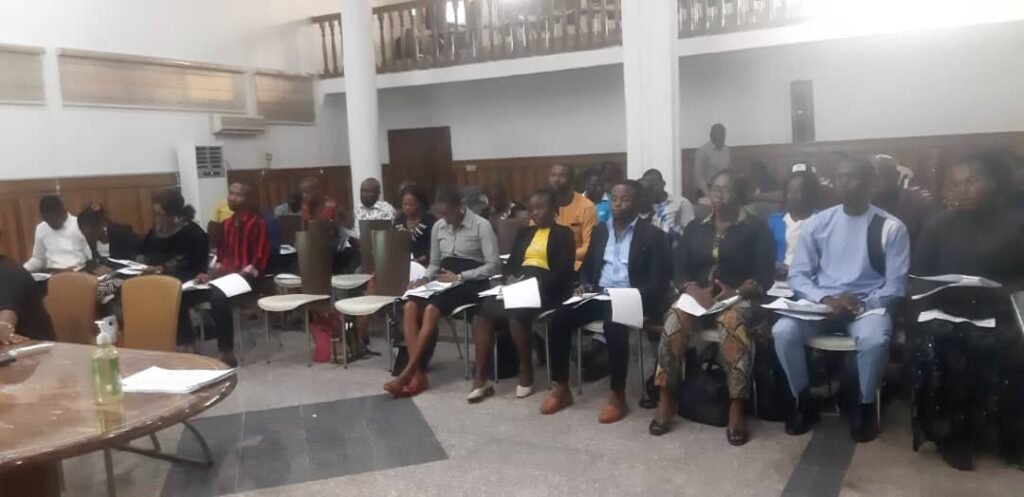Stephen Ukandu, Umuahia
No fewer than 1,628 poor and vulnerable persons in Abia are to benefit from the state COVID-19 Action Recovery and Economic Stimulus (CARES) programme.
The Commissioner for Cooperatives and Rural Development, Mr Donatus Okorie, made the disclosure yesterday in Umuahia while declaring open a two-day step down training for 51 Local Government facilitators.
Okorie commended the Federal Government for initiating the programme which, he said, would help to stimulate rural economies.
He also expressed profound gratitude to Gov. Okezie Ikpeazu for keying into it to ensure that Abia citizens were not left out.
“This programme is special and impactful and would help to create effective demands, given that the beneficiaries will be empowered to pay for goods and services they needed.
“With our elementary knowledge of Economics, we know that the programme will have multiplier effects on rural economies,” Okorie said.
Later in an interview, Okorie said that he was highly elated with the initiative.
“This is what democracy and good governance are all about and I want it extended beyond the initial period for it to reach a greater number of beneficiaries.
“It helps to provide the dividend of democracy and also give a sense of belonging to the vulnerable rural population.
“I hope that as the programme progresses, the number of Abia beneficiaries would be increased.”
He urged the trainees to take advantage of the opportunity to contribute to the successful implementation of the programme in the state.
In a remark, the Head, State CARES Coordinator and Secretary, State Steering Committee, Mr Ejem Kalu, described the training as critical toward ensuring the successful implementation of the initiative in the state.
Kalu said that Abia had six delivery platforms under the programme, including Cash Transfer, Labour Intensive Unit, FADAMA, Social Development Agency, Small and Medium Enterprises and Government Enterprise Empowerment Programme.
He said that it was imperative for the trainees to understand the nitty gritty of the programme implementation.
He thanked the governor for making sure that Abia citizens joined their compatriots from across the federation to be part of the package.
He said that ABIA CARES was designed by the Federal and State Governments, in collaboration with the World Bank, “to alleviate the harsh impact of COVID-19 pandemic on vulnerable Nigerians.”
The Head, Abia State Cash Transfer Unit, Mr Okeziem Nwoko, said that the training was designed to build the capacity of the Local Government Cash Transfer Facilitators, Desk Officers and Grievance Redress Officers on the implementation protocol.
“It is imperative that we guide them properly so they do not make mistakes in the implementation procedure,” Nwoko said.
He said that the Implementation Verification Agents were expected to visit the state in September to assess and verify the status and success achieved.
He said that the programme is specifically targeted at the chronically-ill, aged (from 60 and above), urban poor and persons with special needs (PWSN).
He said that the beneficiaries were picked from the State Social Register, prepared by the State Operations Coordinating Unit.
Nwoko also said that the beneficiaries comprised 40 per cent of women, 10 per cent of PWSN, while the remainder is spread across the other categories.
He said that the enrollment of the beneficiaries would start on Friday, while payment would kick off on the completion of the enrollment.
According to him, “the amount is N10,000 monthly per beneficiary. However, payment is bi-monthly, hence each beneficiary would get a cumulative sum of N20,000.”
A cross-section of the trainees described the training as imperative for them to fully understand the implementation process and ensure its overall success.
The representatives of the Zenith Bank, which is the Payment Service Provider for the programme, pledged the bank’s commitment toward ensuring a seamless process of documentation and Automatic Teller Machine card activation for the beneficiaries.
Ikengaonline gathered that the list of beneficiaries from the 17 Local Government areas ranged from 30 to 200.

